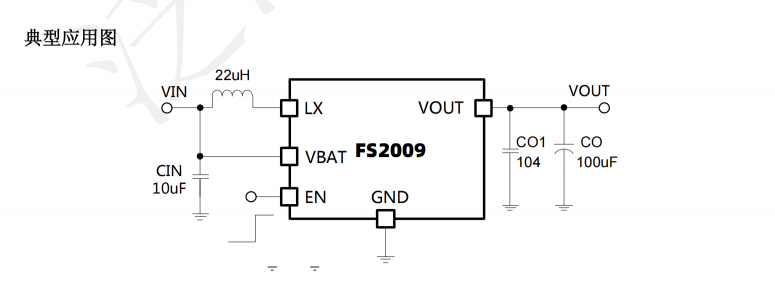September 2, 2014Robotic raptors look and fly like the real thing
Robot raptors that fly like the real thing are designed to act as a deterrent to flocks of nuisance birds
Image Gallery (7 images)
Birds that stray into the paths of aircraft, eat crops, or spread disease from foraging in large numbers at landfills are, at best, a nuisance and, at worst, downright dangerous. Over the years people have tried everything from scaring them away with loud noises to trapping them – all with varying results. Now a designer from the Netherlands has come up with robotic birds of prey that look and fly exactly like the real thing.
Dubbed “Robirds,” these flying raptor creations are the brainchild of Nico Nijenhuis from Clear Flight Solutions. The remotely controlled, realistic looking birds actually flap their wings to fly, and in a way that makes them remarkably similar to the real thing. According to the designers, this means that their artificial predator birds can fly in and around problem areas, encouraging nuisance birds to leave by exploiting the natural instinct of birds to avoid predators, particularly through silhouette and wing movement recognition.
In addition, the creators claim that – as the system is fully controllable by an operator on the ground with a remote control – especially difficult birds can be persuaded to leave by singling them out with the Robird to chase them away.
The practical upshot of all this is that – according to the designers – targeted bird populations learn to avoid what they perceive as the active stalking grounds of a bird of prey and that bird numbers in the areas of Robird operation drop by 50 percent or more. As a result of continued operations, the creators also claim that Robirds virtually eliminate the chances of nuisance bird flock habituation in the long term.
With a body length up to 58 cm (23 in) and a wingspan of 120 cm (47 in), the peregrine falcon model is capable of reaching 80 km/h (50 mph) and is designed to act as a deterrent to birds of up to 3 kg (6.6 lb)。 However, the eagle model is even more intimidating. With a body length nearly twice the length of the falcon and wingspan of up to 220 cm (86 in), this robot bird is designed to scare off any type of bird and would probably scare the odd human or two as well.
Though currently still wirelessly controlled by a human on the ground – and not quite as smart as a Festo seagull – plans are afoot to make the Robirds autonomous, with the company pursuing this goal with business and technical partners and trials currently underway that are set to continue into 2015.
The short video below demonstrates a Robird in flight, demonstrating its striking similarity to the real thing.
Source: Clear Flight Solutions
自动翻译仅供参考
机器猛禽无论是外观还是飞起来都和真的鸟一样
Robotic猛禽外观和飞象真正的thing
机器人猛禽,像真实的东西是为了起到威慑作用,以滋扰鸟群飞
是流浪到飞机的路径鸟,吃庄稼,或在填埋场觅食大量的,充其量是滋扰和,在最坏的情况,非常危险传播疾病。多年来,人们已经尝试了一切,从望而却步大声的噪音来捕获他们 - 所有这些不同的结果。现在,来自荷兰的设计师想出了猎物的机器人鸟看起来,准确地飞象真的一样。
被称为“Robirds,”这些飞行猛禽创造都是尼科Nijenhuis从清除飞行方案的心血结晶。远程控制,逼真的鸟居然扇动翅膀飞行,并在一定程度上使得它们非常类似于真实的东西。据设计者,这意味着他们的人工捕食鸟能飞和周围的问题领域,鼓励滋扰鸟类通过利用鸟类的自然本能,以躲避天敌,特别是通过轮廓和机翼动作识别离开。
此外,创作者声称, - 因为系统是用遥控器在地面操作人员完全可控的 - 特别困难的鸟可以说服单挑出来与Robird追逐他们离开离开
所有这一切的实际结果是。这 - 根据设计师 - 有针对性的鸟类种群学会避免他们认为的猛禽积极跟踪理由和鸟类数量在Robird操作一滴领域50%以上。由于连续作业的结果是,创作者还声称,Robirds从根本上消除滋扰鸟群习惯的机会,从长远来看。
随着体长可达58厘米(23英寸)和120厘米的翼展(47 ),游隼模型能够达到80公里每小时(50英里)的,旨在作为一种防范措施,以高达3公斤(6.6磅)的鸟。不过,老鹰模式更是吓人。随着体长隼的近两倍的长度和高达220厘米(86)的臂展,这个机器人鸟的目的是吓退任何一种鸟,很可能吓跑奇人或两个为好。
虽然目前仍在无线由人类控制在地面上 - 而不是很聪明的一个费斯托海鸥 - 正在计划使Robirds自主的,与该公司实现这一目标与业务和威廉希尔官方网站 合作伙伴和临床试验目前正在进行中被设置为继续到2015年
-
机器人
+关注
关注
211文章
28445浏览量
207205
发布评论请先 登录
相关推荐
通过WebSocket操作OpenHarmony机器
ADS7x28 系列 ADC 器件中集成的真 RMS 模块的性能





 机器猛禽吓走真飞鸟
机器猛禽吓走真飞鸟












评论